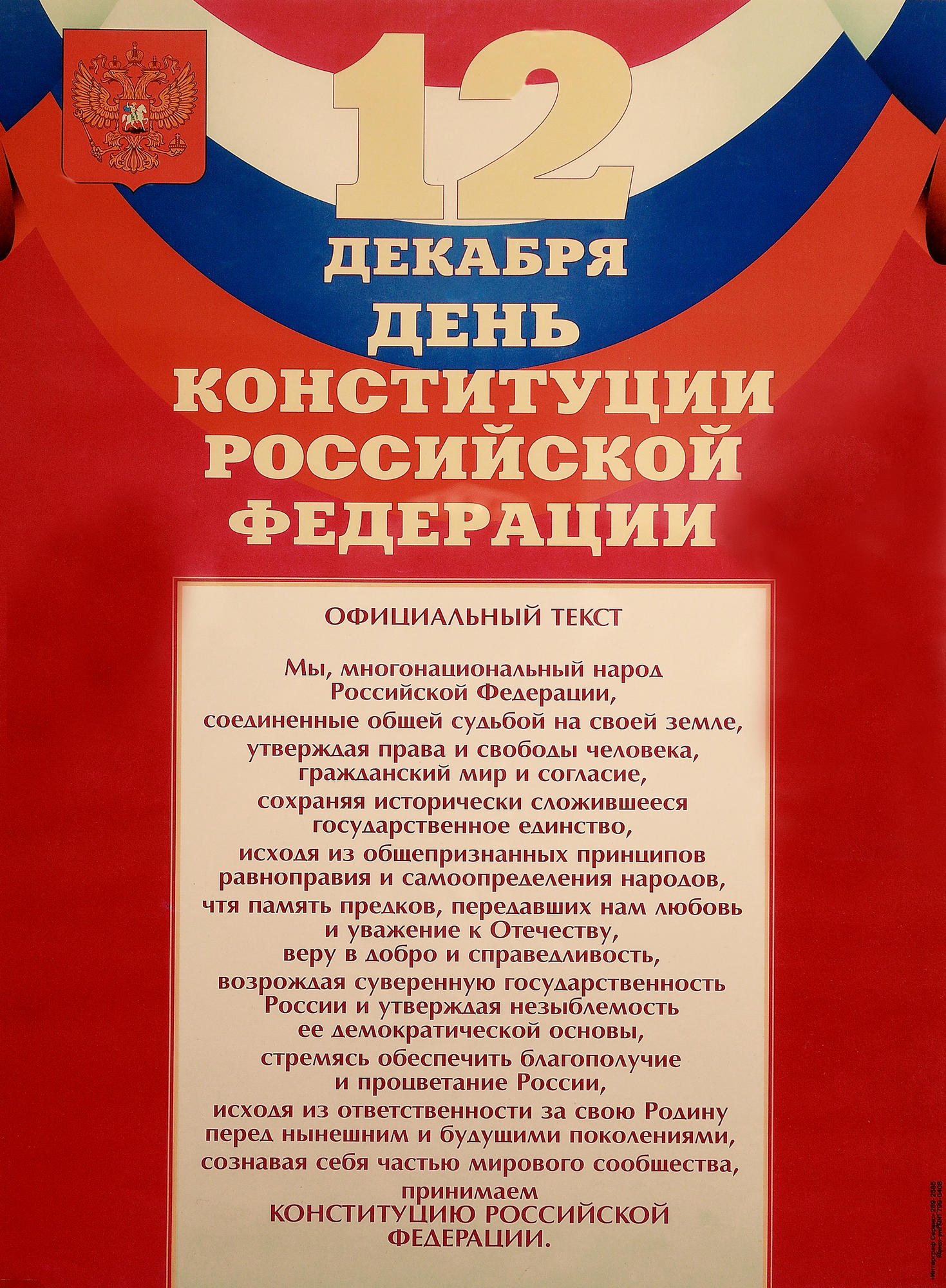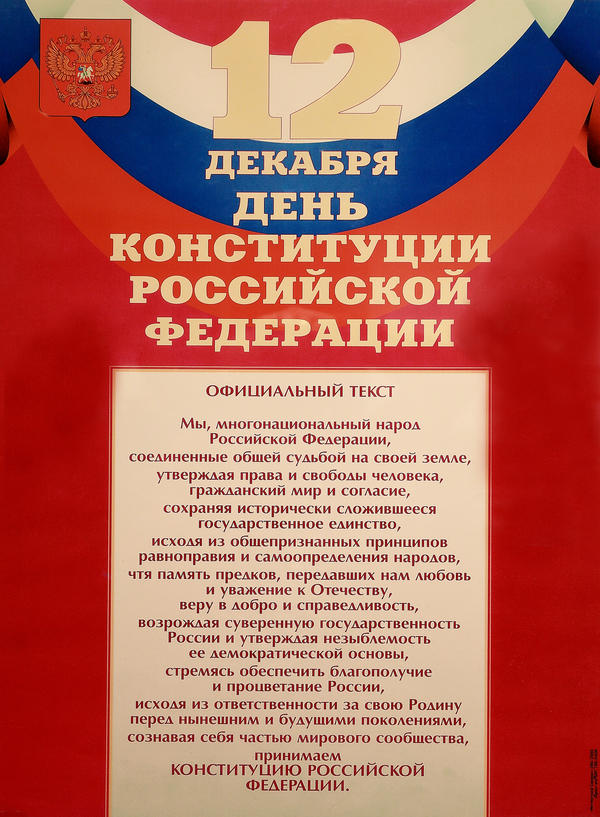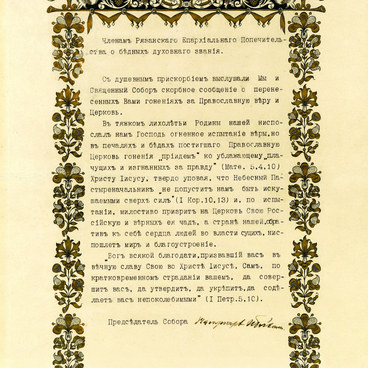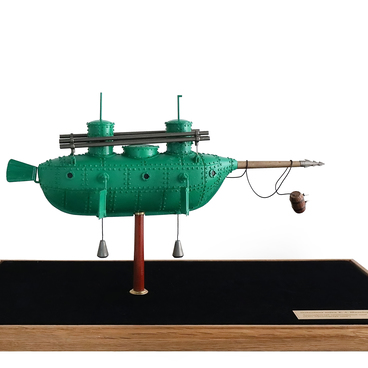The current Constitution of the Russian Federation was adopted in 1993. On December 12, a nationwide referendum was held to present a draft of the future superior regulatory legal act of this country. More than 58 million citizens took part in the vote, that is, more than half of all registered voters.
It took three and a half years to develop the text of the Constitution which was proposed in the referendum. A month before the vote, the draft document was signed by the first president of Russia, Boris Yeltsin, who personally introduced several changes to it. This happened on November 8, and two days later the document was printed in the newspapers so that voters could read it in advance.
As a result of the referendum, the Constitution was adopted by a majority vote. It entered into force on December 25, 1993, when its full text was published by Rossiyskaya Gazeta, the official bulletin of the Government of the Russian Federation. Starting from that day, the Constitution has the highest legal force and sets the rights and freedoms of the Russian citizens.
The Constitution approved a new political system: Russia became a mixed presidential-parliamentary republic with a federal structure. The Constitution also proclaimed the principle of the separation of powers into the executive, legislative and judicial branches.
Despite the fact that the Constitution is an authorized document, it can be subject to important amendments. Several amendments have appeared in it since 1993, for instance those related to renaming the constituents of the Russian Federation, those determining the term of the presidential office, those regulating the activities of the Supreme Court and the prosecutor’s office, etc.
The President of the Russian Federation is the guarantor of the provisions adopted in the Constitution. The text that the president pronounces during the inauguration is also spelled out in the Constitution. The copy of the Constitution on which the head of state takes the oath is kept in the Presidential library in the Kremlin.
Constitution Day became a public holiday in 1994, and until 2005 December 12 was a day off. This day is associated with an important official tradition: it was on December 12 that it was decided to solemnly hand over the first passports to Russians who have turned 14 years old.
It took three and a half years to develop the text of the Constitution which was proposed in the referendum. A month before the vote, the draft document was signed by the first president of Russia, Boris Yeltsin, who personally introduced several changes to it. This happened on November 8, and two days later the document was printed in the newspapers so that voters could read it in advance.
As a result of the referendum, the Constitution was adopted by a majority vote. It entered into force on December 25, 1993, when its full text was published by Rossiyskaya Gazeta, the official bulletin of the Government of the Russian Federation. Starting from that day, the Constitution has the highest legal force and sets the rights and freedoms of the Russian citizens.
The Constitution approved a new political system: Russia became a mixed presidential-parliamentary republic with a federal structure. The Constitution also proclaimed the principle of the separation of powers into the executive, legislative and judicial branches.
Despite the fact that the Constitution is an authorized document, it can be subject to important amendments. Several amendments have appeared in it since 1993, for instance those related to renaming the constituents of the Russian Federation, those determining the term of the presidential office, those regulating the activities of the Supreme Court and the prosecutor’s office, etc.
The President of the Russian Federation is the guarantor of the provisions adopted in the Constitution. The text that the president pronounces during the inauguration is also spelled out in the Constitution. The copy of the Constitution on which the head of state takes the oath is kept in the Presidential library in the Kremlin.
Constitution Day became a public holiday in 1994, and until 2005 December 12 was a day off. This day is associated with an important official tradition: it was on December 12 that it was decided to solemnly hand over the first passports to Russians who have turned 14 years old.



